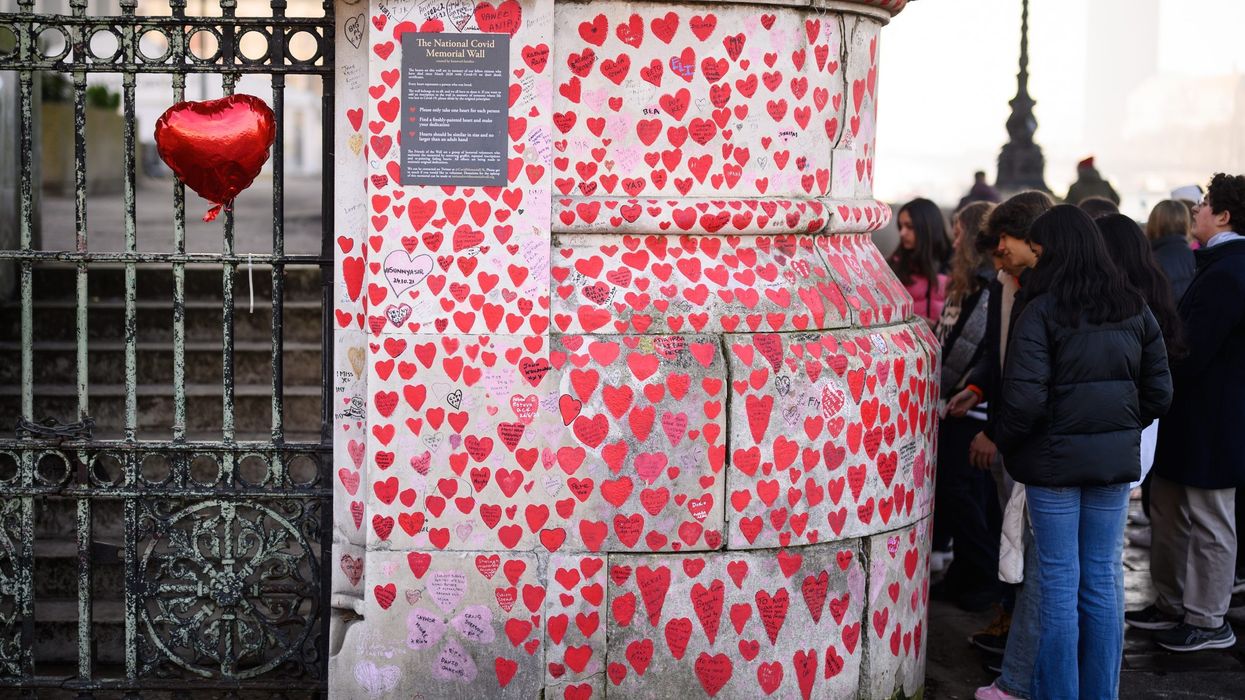The inquiry into the UK government's handling of the coronavirus pandemic is set to begin on Tuesday (13), but it has already been marred by controversy even prior to the first witness testimony.
Heather Hallett, the retired senior judge appointed as the inquiry chair, has requested the unredacted WhatsApp messages and notebooks of former Prime Minister Boris Johnson.
This request has led to a legal challenge from the government, now led by Prime Minister Rishi Sunak, who served as chancellor during the pandemic.
Sunak has denied allegations of attempting to obstruct the handover of materials, while Johnson is reportedly supportive of their disclosure.
Furthermore, relatives of Covid-19 victims have expressed criticism towards the inquiry, arguing that it would be a "farce" if bereaved families are not given the opportunity to provide testimony.
The UK experienced one of the highest Covid-19 death tolls in Europe, with over 128,500 fatalities recorded by mid-July 2021.
The initial phase of the inquiry will concentrate on assessing the UK's resilience and preparedness during the global health crisis.
Initiated by Johnson in 2021, the inquiry has been divided into six distinct sections.
The proceedings will commence with an opening statement from Hallett, the appointed chairperson who previously presided over the coroner's inquests into the 52 individuals who lost their lives in the July 7, 2005 London bombings.
Additionally, a brief film will be presented to illustrate the impact of the pandemic.
On Wednesday (14), prominent epidemiologists Jimmy Whitworth and Charlotte Hammer will be the first witnesses to provide in-person testimonies during the inquiry.
However, the decision to exclude any relatives of individuals who succumbed to Covid-19 from the inquiry's initial six-week phase has drawn criticism and condemnation.
- 'Just a farce' -
Despite the Covid Bereaved Families for Justice group nominating 20 individuals to be potential witnesses for the first module of the inquiry, none of them have been selected to provide evidence, the group said.
"Without learning from the experiences of our members, how can the inquiry properly evaluate the decisions made by those in charge?" said group member Barbara Herbert, who lost her husband Paul to Covid.
"We are people that will be able to put reality to the theory that Hallett is testing, that has got to happen, otherwise it's just a farce," added Saleyha Ahsan, a doctor whose father Ahsan-ul-Haq Chaudry also died.
According to a spokeswoman for the inquiry, the chair, Hallett, has not ruled out the possibility of including testimonies from bereaved individuals in subsequent phases of the investigation. In the UK, public inquiries are funded by the government but operate under the guidance of an independent chair.
Hallett remains firm in her request for the unredacted communications of Johnson, which are expected to contain crucial exchanges within the government regarding the implementation of three lockdowns in 2020.
These communications would likely shed light on decision-making during a period when Sunak held the position of Chancellor, responsible for the country's financial matters.
The government's Cabinet Office, the department that supports the prime minister and oversees the running of government, has questioned the relevance of the material.
But Hallett has insisted it is for her to rule what is relevant to the investigation.
A judge is due to rule on the request at the end of June, with the material expected to be central to the inquiry's second phase later in 2023 on government decision-making.
Later phases will focus on how the UK health service coped with the pandemic, vaccines and therapeutics, government procurement and the impact on the care sector.
The public hearings are scheduled to conclude by summer 2026.
(AFP)




